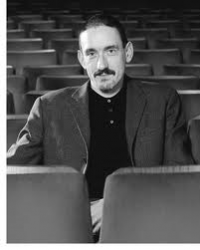Difference between revisions of "Neil Vivian Bartlett"
From QueerBio.com
| Line 1: | Line 1: | ||
| − | [[File:neilbartlett. | + | [[File:neilbartlett.png|200px|thumb|left|Neil Vivian Bartlett]] |
==Country== | ==Country== | ||
| Line 19: | Line 19: | ||
==Description== | ==Description== | ||
| − | Director, performer, author. Multiple prize winner. Appointed Order of British Empire for contribution to the arts. Former Artistic Director at the Lyric Theatre Hammersmith from 1994 until 2004. Has written novels, original works of performance and music-theatre, short stories, newspaper and magazine articles, dramatic monologues and plays, as well as translations and adaptations of classics. Work often reflects gay subculture from the late 1800s to present time. | + | Director, performer, author. Multiple prize winner. Appointed Order of British Empire for contribution to the arts. Former Artistic Director at the Lyric Theatre Hammersmith from 1994 until 2004, and credited for saving this institution. Has written novels, original works of performance and music-theatre, short stories, newspaper and magazine articles, dramatic monologues and plays, as well as translations and adaptations of classics. Work often reflects gay subculture from the late 1800s to present time. |
==Further Reading/Research== | ==Further Reading/Research== | ||
Revision as of 21:50, 29 October 2013
Contents
Country
Great Britain
Birth - Death
1958 -
Occupation
Playwright
Notable Achievements
OBE
Description
Director, performer, author. Multiple prize winner. Appointed Order of British Empire for contribution to the arts. Former Artistic Director at the Lyric Theatre Hammersmith from 1994 until 2004, and credited for saving this institution. Has written novels, original works of performance and music-theatre, short stories, newspaper and magazine articles, dramatic monologues and plays, as well as translations and adaptations of classics. Work often reflects gay subculture from the late 1800s to present time.

